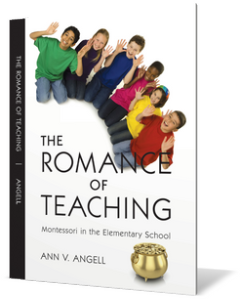A Special Education Assessment: Speed up Learning!
On the first day of October, I attended a meeting before school with the Special Education team to discuss the academic capabilities and needs of a boy who is in my class for the second year, now as a fifth grader. I had been informed that this boy had scored “Unsatisfactory” on all sections of the CSAP (Colorado Student Achievement Program) tests that he took last spring, and that the Special Education staff believed he needed special help.
The boys’ mother was in attendance, but the boy was not. There was a psychologist present along with a second special education person, a speech therapist, and myself. The psychologist present began by describing what she called, “loosely, an IQ test” that she had administered to the boy. She described in some detail the various sections of the tests and how he had performed on each. For example, she said that he was unable to name categories when three related words were read (e.g., chair, sofa, and table, which he named as “something to sit on,” rather than “furniture.”) A non-verbal task was described in which he was given a color pattern with two reds on the diagonal and one blue in the third quadrant. He was able to add blue to the fourth quadrant to complete the pattern. However, when he was shown three colored shapes in a row, then the beginning of the three in a second sequence, he was unable to detect the pattern and finish it correctly. She reported that he did poorly on almost all of the comprehension tests, that he was able to come up with answers, but not in the required amount of time. In fact, he needed lots of extra time to reason out those verbal questions. The psychologist’s conclusion was that the boy had an IQ of about 86, which she said was at the very low end of normal and that his non-verbal skills were significantly better than his verbal skills. Next the second “special educator” reported consistently poor scores on the academic measures of another battery of tests she had administered to the boy. Based on these two batteries of tests, the special educator recommended that the boy be sent to her for at least an hour daily to “catch up” since he was at least a grade level behind.
The boy in question here was a shy, quiet, but cooperative student during his fourth grade year in my class. He had some serious allergies in fall and spring, but he was usually present and appeared to do his best to keep up with the assignments and projects undertaken by fourth graders. He was always eager to try writing reports, but his handwriting, his spelling and his limited reading ability made for very slow progress on a report.
Within the first week of this school year, the boy (now a fifth grader) had gathered together 20 notes about Abraham Lincoln and showed them to me, eagerly asking for help to organize them so that he could write his first rough draft. He completed that draft, was eager to edit it and finalize all the parts over the next week and a half. Next came a report about a “hawk-headed parrot,” and for the last two weeks, he has been totally engaged writing a report about Terrell Davis— about five pages of commentary that was well-organized with a friend and then presented with pride to the class. I noticed yesterday that he was busy gathering notes about a new topic, undisclosed to me, and that he was working with a different classmate this time. He is clearly teaching others how to write reports. His writing is increasingly organized into good paragraphs, neatly written and even spelled correctly. When asked to read aloud to me (as is required in the reading assessments I have been asked to give to all readers who are reportedly “below grade level,”) his scores still show him a grade level behind, reading at fourth rather than fifth grade level. My own observations of his report-writing, however, tell me that he is reading non-fiction more competently all the time and that his enthusiasm for gleaning knowledge from text is keen.
In the few minutes I was asked to speak about the boy at the end of the meeting, I reminded those present that the problem they were discussing appeared to me to be an “adult problem.” That is, the adults who judge children and their progress by test scores see problems on their charts that are related to arbitrary expectations, but may not exist in the real life of an individual child. How could this boy be asked to work harder or progress faster? Clearly his daily commitment to learning is near 100%, and he has found his own path for making progress. It is based on his interests along with his obvious awareness that he needs to read, write and understand better. He does not have a problem; he has a personal challenge, and he seems to be taking full responsibility for meeting that challenge.
I will not oppose this “special help” because I know the decisions made to solve these adult problems are always paramount. In particular, there seems to be a new district-wide and therefore school-wide panic about all the students who are scoring “Unsatisfactory” on the steady parade of assessments they are asked to take. There are more poor scores followed by increased assessments all the time.
If, however, this special help undermines the boy’s confidence or his enthusiasm for learning in any way, I’m going to holler bloody murder!
